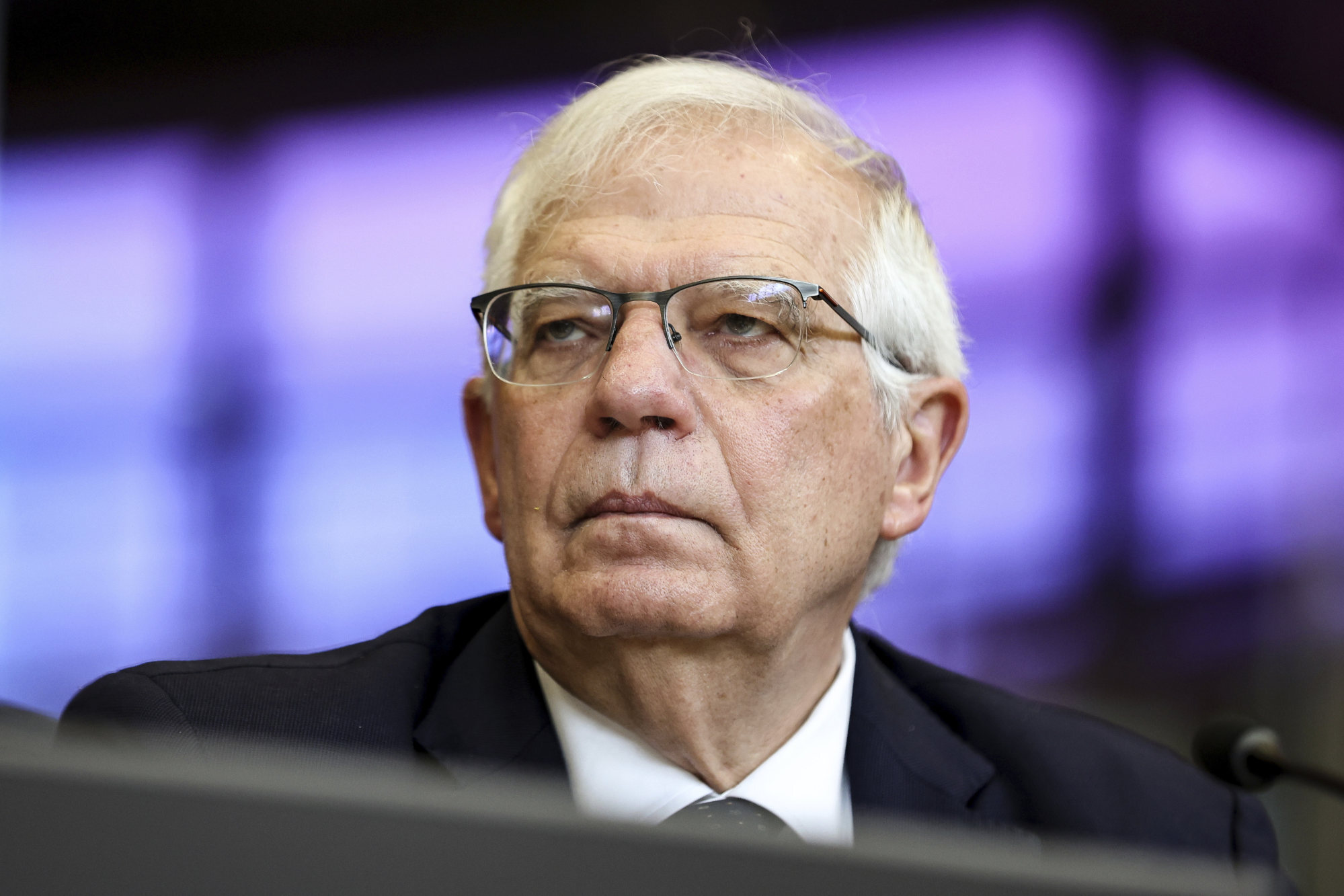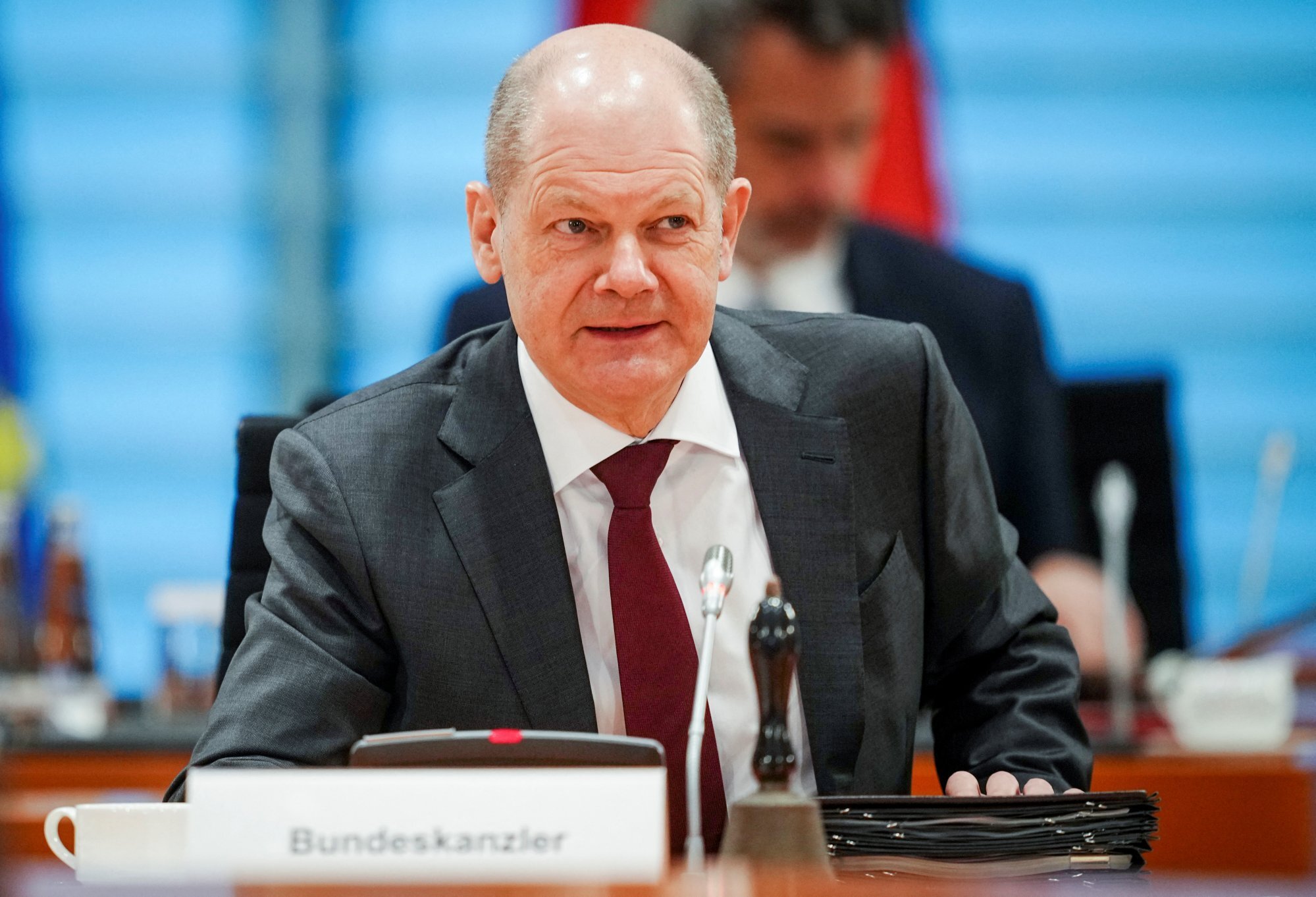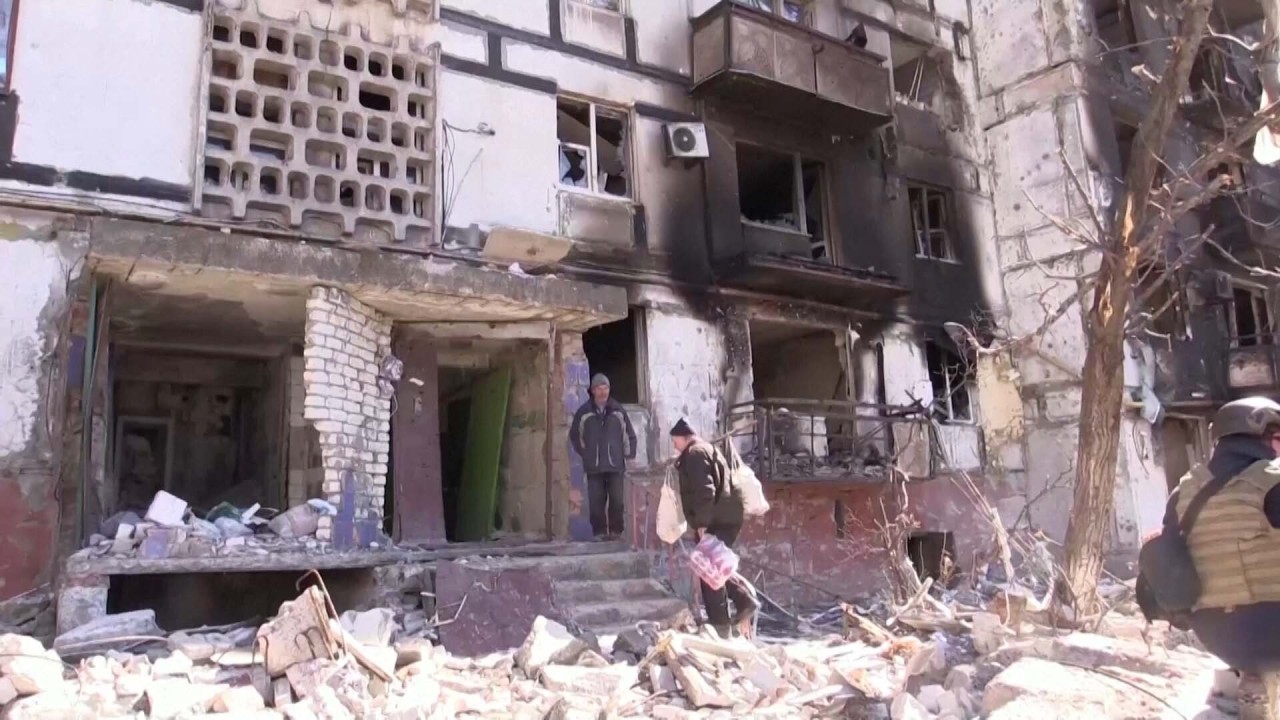
At China-EU summit, Beijing will be reminded its support for Russian war in Ukraine comes at a cost
- EU leaders doubt they can force Beijing to ‘publicly alter their stance’, but there will be warnings about aiding Moscow any further
- The all-day summit will see European officials address Premier Li Keqiang in the morning and President Xi Jinping in the afternoon
European Union officials plan to press China’s top leaders over their support for Russia’s invasion of Ukraine on Friday during a long-delayed summit that will be dominated by discussion of the war, now in its second month.
EU leaders doubt they can convince China to condemn Moscow’s actions. Nor do they believe they can force Beijing to “drastically and publicly alter their stance” towards the war, a senior EU official said.
But there are hopes that a frank discussion about the economic costs of supporting Russia may help convince Chinese President Xi Jinping and Premier Li Keqiang not to do anything to further damage already strained ties with Europe.
“We want to hear from them why they have sided with the Russians. And we will try and convince them that it’s not in our joint best interests, especially since we know that this war is not going to be solved by tomorrow,” an EU official said.
“We’re not asking them to slovenly walk behind us and say, ‘yes we love the EU’. We’re asking them to look into the reality and see what is going on in Ukraine, and not actively side with or provide arms to Russia,” the official added.
Reflecting the low level of ambition going into the summit, there will be no joint statement, nor are many “deliverables” anticipated.
EU-China relations have been dented by bilateral sanctions, the collapse of an investment agreement and anger over Beijing’s coercion of the tiny Baltic state of Lithuania over its ties with Taiwan.
These suspicions have been sharpened by Beijing’s persistent support for Moscow’s claims, as well as the parroting of Kremlin talking points and disinformation by Chinese state media and foreign ministry representatives.
A meeting between the Chinese and Russian foreign ministers on Wednesday yielded a commitment to “push China-Russia relations to a higher level in the new era”, an affirmation of the “no limits” partnership the countries’ presidents pledged on February 4, shocking European leaders.
Ukraine war and sanctions tipped to top China-EU summit agenda
The subsequent invasion led to growing suspicions about China’s position, in line with rising distrust of authoritarian powers. Some in Europe have begun framing the crisis as a battle between “democrats and autocrats”.
China faces a “simple choice”, Latvian Prime Minister Krisjanis Kariņs said last week.
“Throw in your lot with Russia – which is waging war against Ukraine, bombing women, children, hospitals – or find a way to work with Europe with the US and with Western democracies.”
Others have sought to stay away from this framing, lest it push China and Russia closer together.
Speaking in Brussels on Tuesday, the EU’s top diplomat Josep Borrell said it was “not in our interest to lean Russia toward China … to create a bloc of countries that don’t have a democratic system”.
“I don’t think what’s happening with the role of Russia is going to help China a lot … I don’t think China is very happy with what’s happening,” he added.

Chinese officials are “reluctant” for Ukraine to dominate the first EU-China summit for almost two years, people familiar with the planning said. But it will top the agenda at the insistence of EU member states, which have long been divided on how to deal with China.
There are still differences on exactly how hard to push Beijing, but diplomats and officials insist there is alignment on the need to make plain to China that if it continues to back Moscow, there can be no business as usual.
This sentiment was crystallised during US President Joe Biden’s visit to Brussels last Thursday.
Addressing the leaders of the EU’s 27 member states behind closed doors, Biden confirmed that Washington had evidence that China expressed willingness to provide military support to Russia, according to a person who was present.
“The general atmosphere was very positive with Biden. I don’t think there was any tension over his China comments,” said one diplomat.
Biden ‘hopeful’ China’s economic ties to West will keep it from arming Russia
China’s providing of any military support would be “an inflection point”, said a second, after which it “effectively becomes an accomplice in what we see as an unjustified aggression”.
Shi Yinhong, an international relations professor at Renmin University, said the war had “greatly exacerbated disputes between China and the EU”.
“If the West believes that China is providing direct or indirect support to Russia, the EU will not be kind to China,” Shi said.
The result is that Borrell, European Commission President Ursula von der Leyen and European Council President Charles Michel have been given a mandate to remind Beijing that it should not take for granted a trade relationship that grew by 27.5 per cent last year.
German Finance Minister Christian Lindner reflected this new reality in a speech on Tuesday. “We have to recognise that we have an enormous risk … China doesn’t respect our social model, our understanding of liberality, our recognition of international law,” he said.

A shift in attitudes in Berlin, where Chancellor Olaf Scholz tore up 30 years of foreign policy in his Zetenwende (“turn of the times”) speech in February, sparked concern in Beijing, given that Germany accounted for 28.3 per cent of total EU-China trade last year.
Perhaps in recognition of this, deputy foreign minister Deng Li told a delegation of German businesses including Volkswagen and Daimler on Tuesday that he hoped they would “continue to play an active role, constantly deepen China-Germany pragmatic cooperation”.
“China wants to ensure that the political changes announced by [Scholz] … including the remilitarisation of Germany, are reversed,” Tim Ruhlig, a senior fellow at the German Council on Foreign Relations, wrote in a new report.
The geopolitical situation means issues of potential cooperation such as climate, global health, the Iran nuclear deal and biodiversity will play second fiddle during an all-day event that will see EU leaders address Li in the morning and Xi in the afternoon.
‘Two sessions’ 2022: Beijing urges EU not to amplify China-Lithuania spat
European grievances that might have taken centre stage before the war, including China’s coercion of Lithuania and trade malpractice, human rights concerns in Xinjiang and Tibet, and a crackdown on political opponents in Hong Kong, will also slip down on the agenda.
However, the South China Morning Post has learned that ahead of the summit, senior EU staff met with leading figures from Hong Kong’s civil society in exile, including Ted Hui Chi-fung and Nathan Law Kwun-chung.
In the same week, the bloc’s Political Security Committee, a powerful group of ambassadors sanctioned by China last March, was briefed by senior officials on ways to enhance its relationship with Taiwan within the bounds of the one-China policy.
Xiang Lanxin, an international relations expert at the Institute of International and Development Studies in Geneva, said the shift in rhetoric in Europe was “worrisome”, and suggested that discussions on Ukraine were the only prospect of reaching common ground.
Lavrov briefs Beijing on Ukraine in first China visit since invasion
“If the EU wants to force or somehow convince Chinese to say we condemn Russia, that’s not going to happen, full stop, that’s ridiculous,” Xiang said.
“The real middle ground will be that the EU and China probably can do some serious cooperation for the purpose of mediation,” he said, adding that China will be unlikely to go public with any mediation efforts, nor would it act with any urgency.
Despite the low expectations for the summit, the EU’s secretary general for external affairs, Stefano Sannino, said this week that the meetings would not be “business as usual”.
“I don’t know if it’s a one-issue summit, but certainly it will be a very political summit,” he said.
“The Ukraine war will necessarily be central in the discussion, and I think this will force an open and frank discussion about what is the role China wants to have on the world stage.”
Additional reporting by Laura Zhou in Beijing


